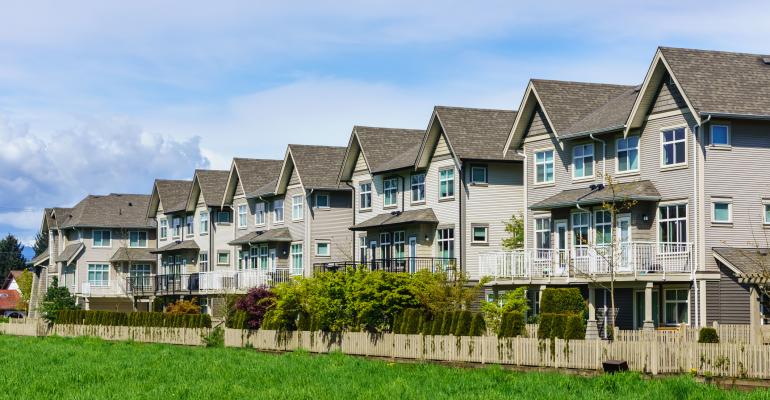After three years of double-digit returns in domestic equities, it’s getting harder to find attractive investment opportunities.
However, one opportunity worth considering is an investment in senior housing for the nation’s middle-income retirees. The residents of senior housing are the public safety officers, teachers, service workers and many others who are the backbone of America’s economy, but quality housing for this demographic is in increasingly short supply.
A Three-Tiered Value Proposition
For investors, senior housing can be a smart place to put capital for three reasons.
For starters, senior housing is one of the best opportunities in real estate today – the top performer in commercial real estate over the past five years, according to the National Investment Center for Senior Housing. (See chart below).
Next, senior housing is an impact investment that delivers both measurable social benefit and financial performance. The positive social impact of keeping families and communities intact is, by itself, a singularly worthwhile reason to put capital in this asset category.
Finally, enlightened developers of senior housing are building sustainable communities that set the standard for environmental progressivism. The best new developments reduce carbon footprints, minimize Volatile Organic Compounds (VOCs) and offer amenities and programs that nourish the physical and mental health of residents.
An Acute Shortage
In the U.S. today, there’s an acute shortage of senior housing for those who currently earn $25,000 to $75,000. The shortage is due to a variety of factors: the rapid growth of the senior population due to increased longevity, a dearth of new construction post financial crisis, and a lack of affordability.
In fact, only 50,000 independent living/assisted living units have been built in the past five years, but a tsunami of seniors is rapidly approaching. The population 65 and over has increased from 35.5 million in 2002 to 43.1 million in 2012 – a 21 percent increase.
Strong Investment Thesis
With low interest rates and high market valuations in equities, the case for senior housing is compelling.
No. 1 – Attractive investment returns. Senior housing has outperformed every asset type in commercial real estate on a one-year, three-year, five-year and eight-year basis. Senior housing delivered double-digit returns in every one of those time periods.

No. 2 – Broad portfolio diversification. Senior housing enables facilitates portfolio diversification. There is a wide range of investment equity and fixed-income opportunities by geography, property type, loan duration, among other characteristics.
No. 3 – Alternative asset exposure. Senior housing is not a traditional asset class like equities or fixed-income. As such, it can be considered an alternative asset. Debt and equity investments in senior housing may offer returns non-correlated to traditional asset classes. One reason for the relative stability and safety of this asset type is the steady historical growth rates. Rental rates and revenues for senior housing have increased, on average, 3% to 5% annually for the past several decades, according to the National Investment Center For Senior Housing.
No. 4 – A rare growth opportunity in real estate. The market for senior housing is large and expanding rapidly. The population over 75 is expected to grow 35% from 2010 to 2020. Based on 2010 population estimates, over 20% of the 12 million households headed by persons at least 75 years old reside in senior housing and care properties. The South, Southwest and West are experiencing the biggest increases in the senior population. A wise place to put capital is in an asset that is indispensable to a large number of people.
No. 5. – A positive impact in local communities. Deploying capital to senior housing is an investment in the local community. Senior housing strengthens communities by allowing people to retire and live in the same place where they have established business and personal relationships. For impact investors and mission-driven investors, senior housing addresses a clear social need while delivering attractive returns.
Maxwell Drever is Chairman of Drever Capital Management.





